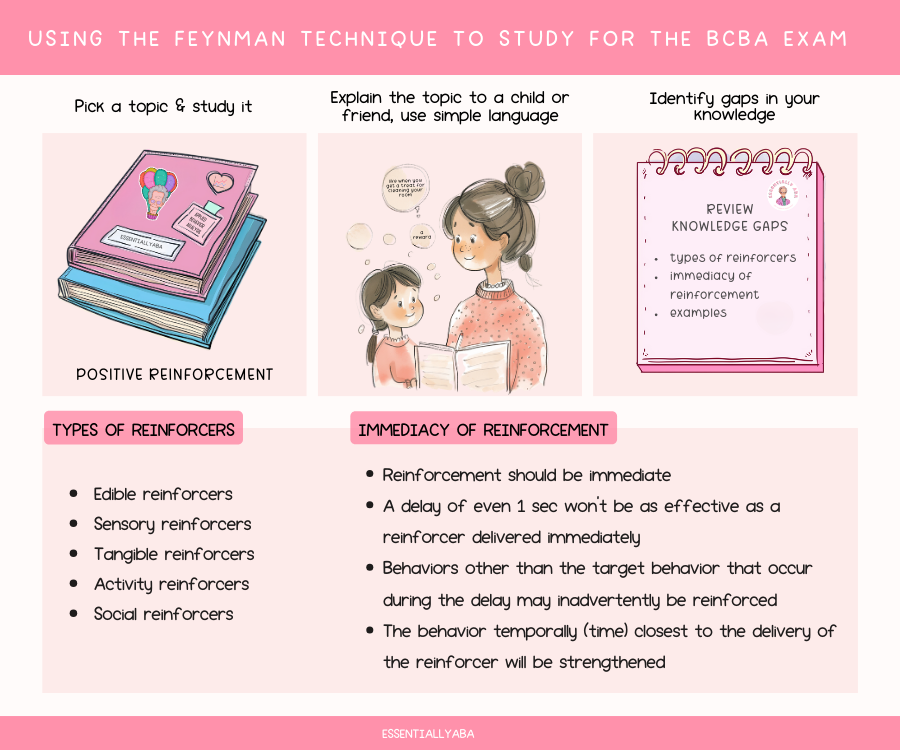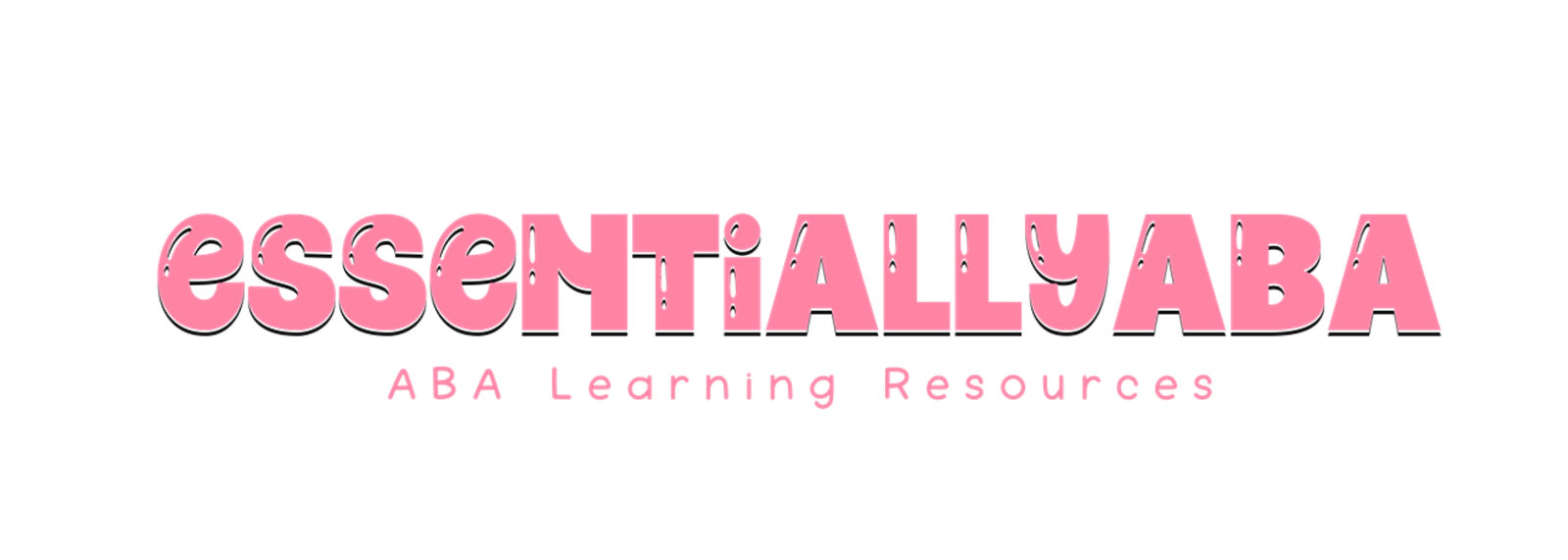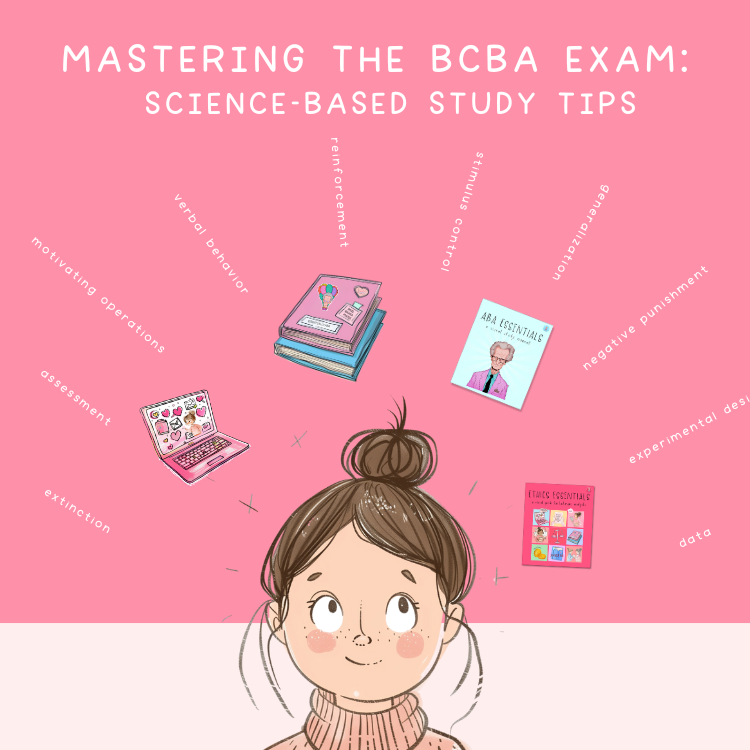Before you begin studying for the BCBA exam, it’s crucial to understand the science behind effective studying.
Did you know that learning and memory naturally decays over time? That means your study sessions, as effective as they are, only lead to a percentage of retained information over time.
But, with the right techniques, you can combat this decay and supercharge your study sessions. Let’s dive into some science-backed strategies to help you study for and ace the BCBA exam.
1. The Feynman Technique: Ever heard of explaining complex topics to a 5-year-old? That’s the essence of the Feynman Technique. By distilling complicated concepts into simple explanations, you deepen your understanding and reinforce your knowledge.
In order to explain a concept effectively to a 5 year old, you must have a clear understanding of the information.
How you can incorporate this into your BCBA study sessions:
During study sessions stop and ask yourself:
- does this make sense?
- can I explain this to a friend?
After study session:
- pick a ABA concept
- explain it to a friend
- answer any questions
Reflect on:
- where you got stuck
- what you didn’t understand
- what gaps did you find in your understanding
- what questions came up that you didn’t have answers to
Dive deeper until you can explain the concept in simple terms to anyone in or outside the world of ABA.
Understanding is the key to learning.

2. The Science of Active Recall:
Learning starts with putting information into your brain through reading, lectures, videos, etc.
But retrieving that information is where the magic is. When you find yourself seated at the exam desk facing the BCBA exam, your success relies on your brain’s ability to retrieve the information you studied.
Luckily, you can easily prepare your brain to retrieve and recall information quickly and efficiently using active recall.
John Dunlosky, a cognitive psychologist, has done extensive research on learning and retention. His research has found that active recall and testing yourself to be the best form of learning.
Active recall is all about retrieving information from your brain. The harder your brain works to recall information, the stronger the memory becomes.
Every time you revisit a topic and actively recall what you’ve learned, it’s like reinforcing a memory muscle in your brain. The more you flex that muscle, the stronger it gets, and the longer it holds onto the information.
Instead of letting your hard-earned study sessions slip away into the void, strengthen the neural pathways with some active recall sessions. Your brain will thank you when you face the exam.
How to use active recall to study for the BCBA exam:
- test yourself frequently on what you are studying
- Close the book, pause, and ask yourself recall questions
- what did I just read?
- what are the concepts here?
- can I summarize this in my own words?

3. Taking Notes:
Passive note taking is not a significant learning tool. Instead, use your notes as a active learning tool.
Fully engage your brain by summarizing notes into your own words.
After a study session, challenge yourself to generate questions based on the material. Or, answer questions about the concept.
This not only reinforces your understanding but also prepares you for active recall sessions later on.
4. Understanding ABA Concepts: To ace the BCBA exam, you need to understand how all the concepts fit together. Start by grasping the bigger picture, then dive into the details.
Create mental images to help you visualize complex concepts and their relationships.
Remember, understanding is key. Memorization won’t help you if you don’t understand the concepts.
5. The Power of Spaced Repetition: Hermann Ebbinghaus (1850-1909), a German psychologist, found that we begin to lose learned information over time.
- one day after attending class or reading a chapter, students forget approximately 75% of information
Although the forgetting curve is a natural process, there are science backed ways to combat it.
..the magic of spaced repetition.
The idea is simple: learn, review, review, review..
the more touch points you have with the information, the more the information solidifies.
Remember- use active recalling to retain the information and ensure long term learning.
How to use spaced repetition to study for your BCBA exam:
- spread our your study sessions over time
- revist learned information by using
- active recall
- rereading text
- create a spaced repetition schedule
for example: you study verbal behavior today.. study verbal behavior again the next day, then 3 days later, then a week later, etc
By actively recalling information at strategic intervals, you strengthen memory retention and prep yourself for the BCBA exam
6. Mind Maps: Visualize your study material with mind maps. Start with a central concept and branch out into all the topics that fall under.
This visual representation helps you see the big picture and understand how everything fits together.
Mind maps are your roadmap to comprehensive understanding.
7. Memory Techniques: Mnemonics: Mnemonics are your best friend when it comes to passing your BCBA exam.
A mnemonic is anything that aids memory. From acronyms to visual associations, these memory aids make studying fun and effective.
But remember, mnemonics are most powerful when paired with understanding. Use them as tools to reinforce your knowledge, not as substitutes for true comprehension.
Use these science science-based study tips when prepping for the BCBA exam.
Remember, it’s not just about memorizing—it’s about understanding concepts and making them stick.
Embrace active recall, challenge yourself, and use spaced repetition. You’ve got this!




Leave a Reply